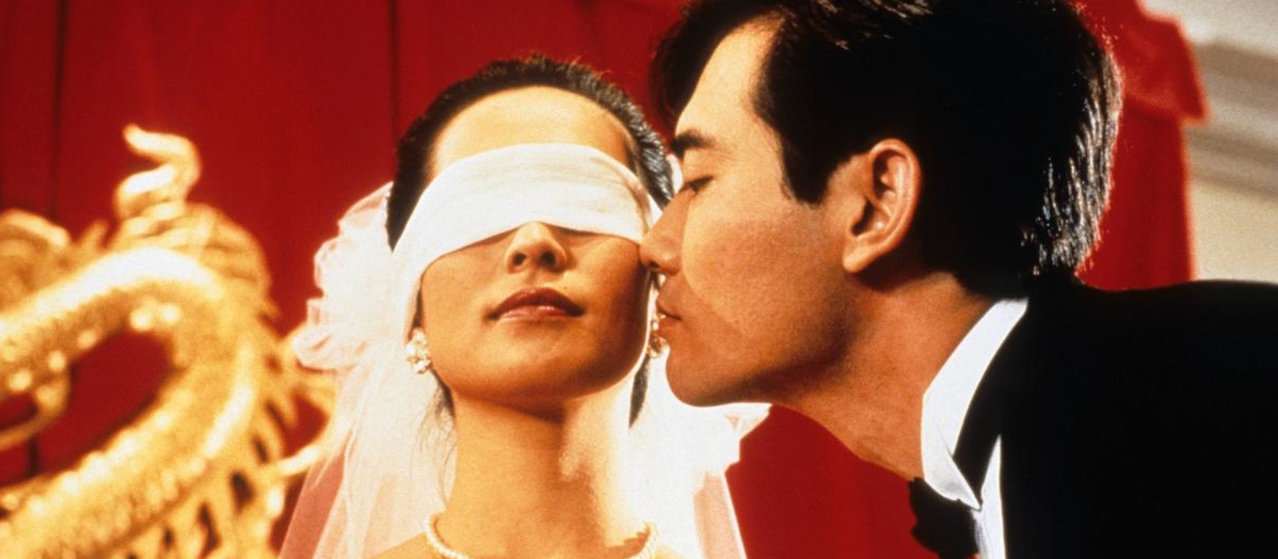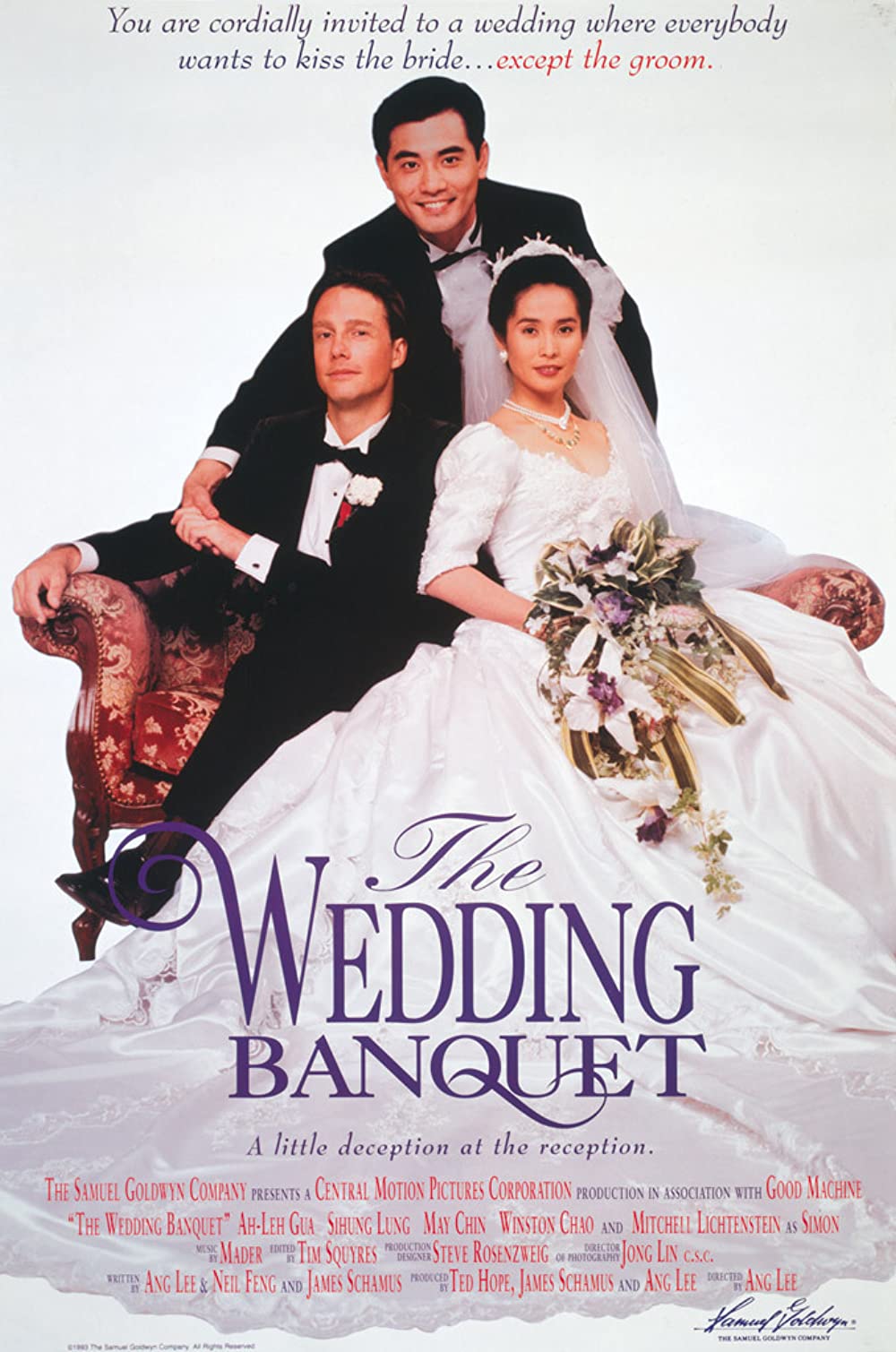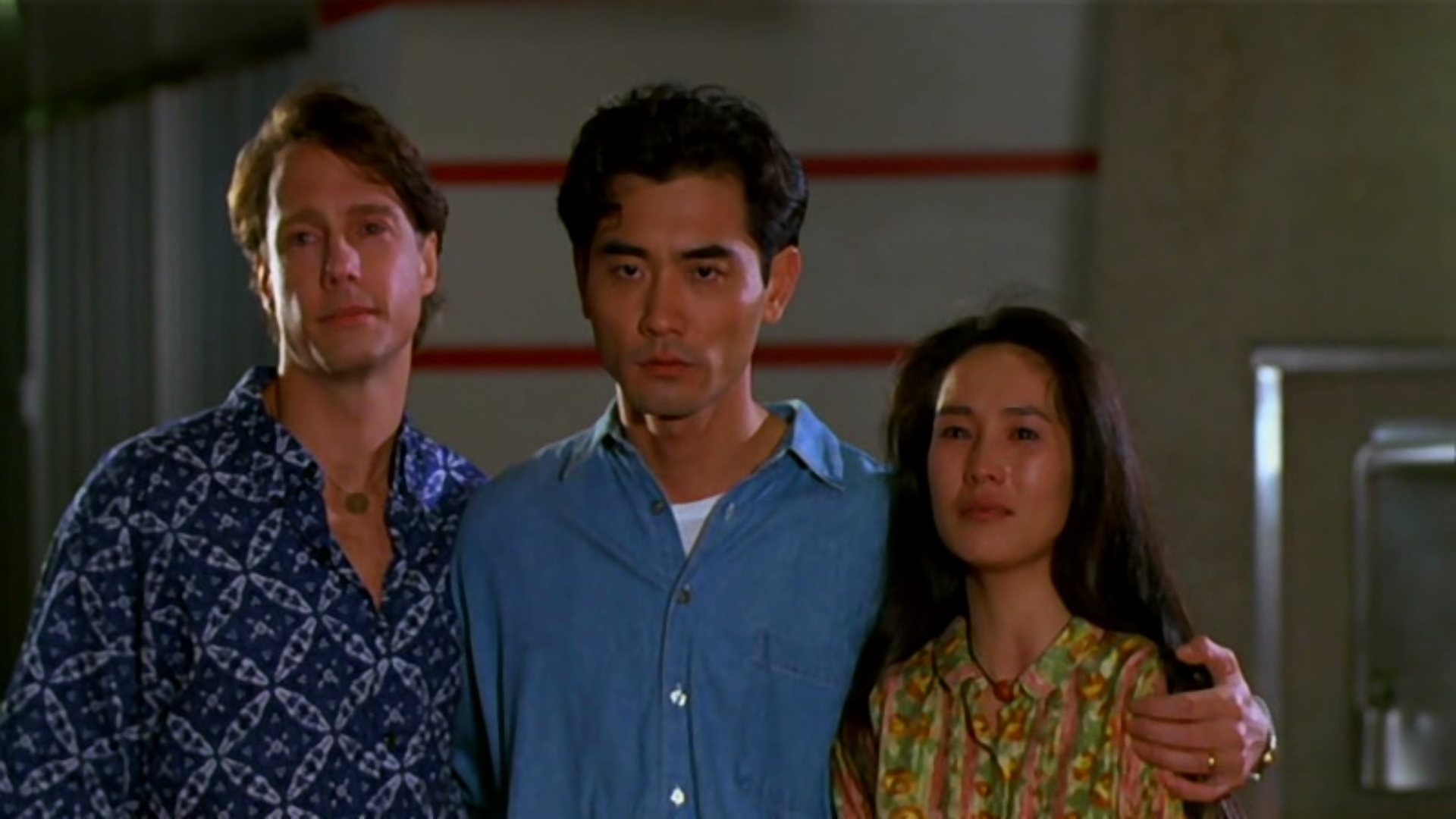

“Where is Arizona?”
“Texas.”
Ang Lee’s The Wedding Banquet is several things at once: a good-natured fool-the-parents hijinx comedy in the mold of La Cage aux Folles, a piercing family drama, a mash-up of Eastern and Western cultures, and a reckoning between traditional and modern sensibilities. While it is mildly successful in most of these areas, its ultimate success hinges upon the fair treatment of its characters. Though unabashedly contrived, Lee’s screenplay (credit is shared with Neil Peng and James Schamus) doesn’t wallow in sentimental melodramatics or overextend for out-of-bounds comedy. Rather, it lets its humor arise organically from the premise, and allows its characters to become “real people” to such a degree that the central presence of a gay couple feels entirely natural, whereas the inclusion of homosexual partners in so many modern films feels obligatory—grafted on just to pander and/or kowtow. These convincing characterizations allow the film to overcome several missteps and ensure the audience connects with the bittersweet farewell at its conclusion.
The plot revolves around Wai-Tung (Winston Chao), a mid-20s Taiwanese transplant living in New York City with his American lover, Simon (Mitchell Lichtenstein). The pair makes a joke of Wai-Tung’s mother signing him up for a dating service by submitting a completed questionnaire that describes an impossible woman: an opera singer, nearly six feet tall, fluent in five languages, with two PhDs. The service finds a near-match and sends her to Manhattan, but after an awkward date, Wai-Tung confesses his dilemma and the girl admits that she, too, is afraid to tell her parents that she is dating an American man. Persistently annoyed at his parents’ enduring desire to see their bloodline continue, Wai-Tung and Simon hatch a foolproof plan: Wai-Tung will marry Wei-Wei (May Chin), a starving artist type living as a tenant in one of Wai-Tung’s apartments who needs a green card to stay in the United States. Wai-Tung gets his parents off his back, Wei-Wei gets her green card, everybody’s happy.
But the hairbrained scheme is thrown into disarray when Wai-Tung’s parents announce their intention to travel to New York City for the wedding. Convinced that they can keep up the charade for a couple of weeks, Simon pretends to be a roommate and Wei-Wei pretends to know how to cook. But Mr. Gao (Sihung Lung) and Mrs. Gao (Gua Ah-leh) never seem to buy the story, even if they play along. The spurious arrangement becomes even more difficult to uphold when a restaurateur recognizes Mr. Gao and insists on hosting a large wedding banquet to honor his former commander.

Though the reception goes off without a hitch, the wedding rituals from two cultures result in the drunken couple going to bed together, unintentionally giving life to the grandchild that the Gaos are so anxious for. Unsurprisingly, this causes relationship upheaval, leading to shouting matches and spilled secrets. Indeed, the latter portion of the film is fraught with angst and dread, a drastic tonal shift from the cheerful beginning. This works because Lee pushes the outlandish premise to its comic breaking point and then transitions just before he stretches it too thin.
But where so many of the larger plot elements feel entirely ridiculous and several sequences delight purely in a comedy of deception and misunderstanding, The Wedding Banquet has an enduring humanity that comes through in its less riotous moments: when Wai Tung comes out to his mother; when Mrs. Gao provides a motherly presence for her new daughter-in-law; when Mr. Gao secretly gives the traditional bride’s gift to Simon even though he doesn’t quite understand his son’s choices. This tender-hearted familial character study blends quite nicely with the elements of screwball comedy, grounding what might have been simple farce in earnest human emotion.